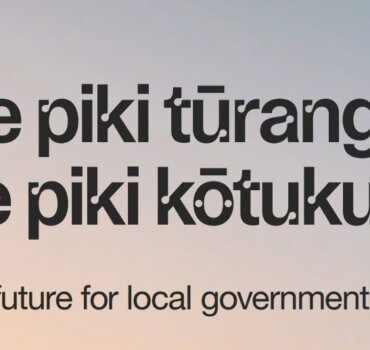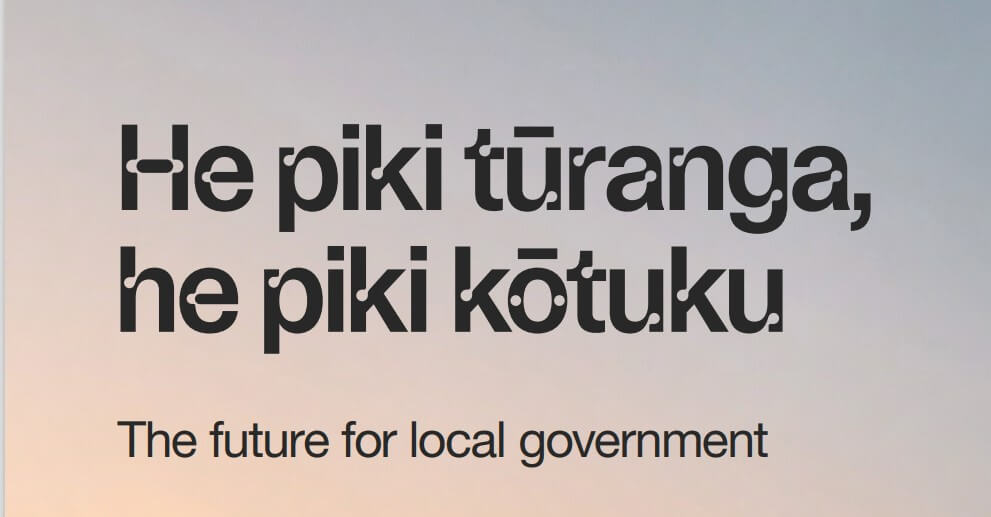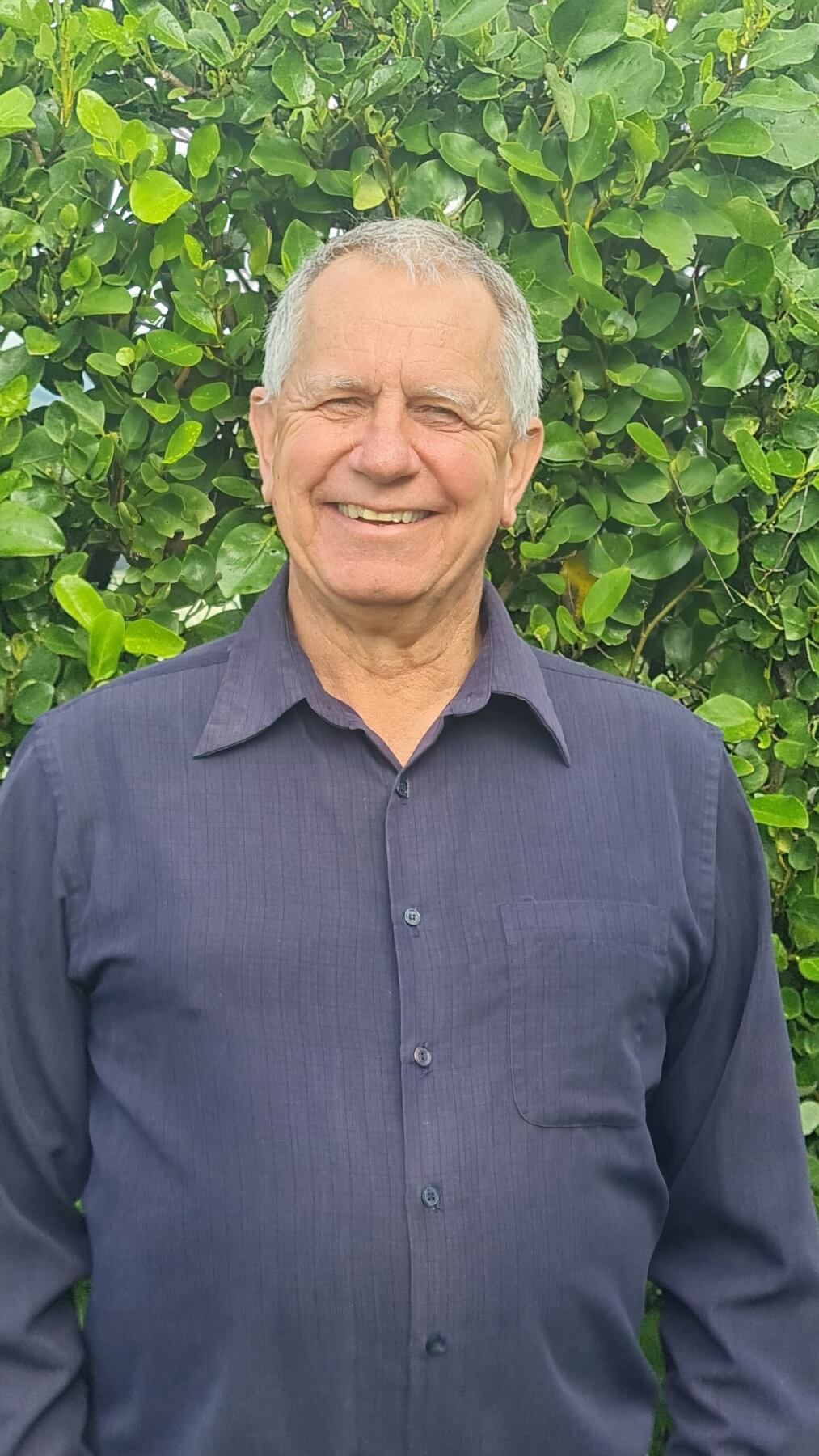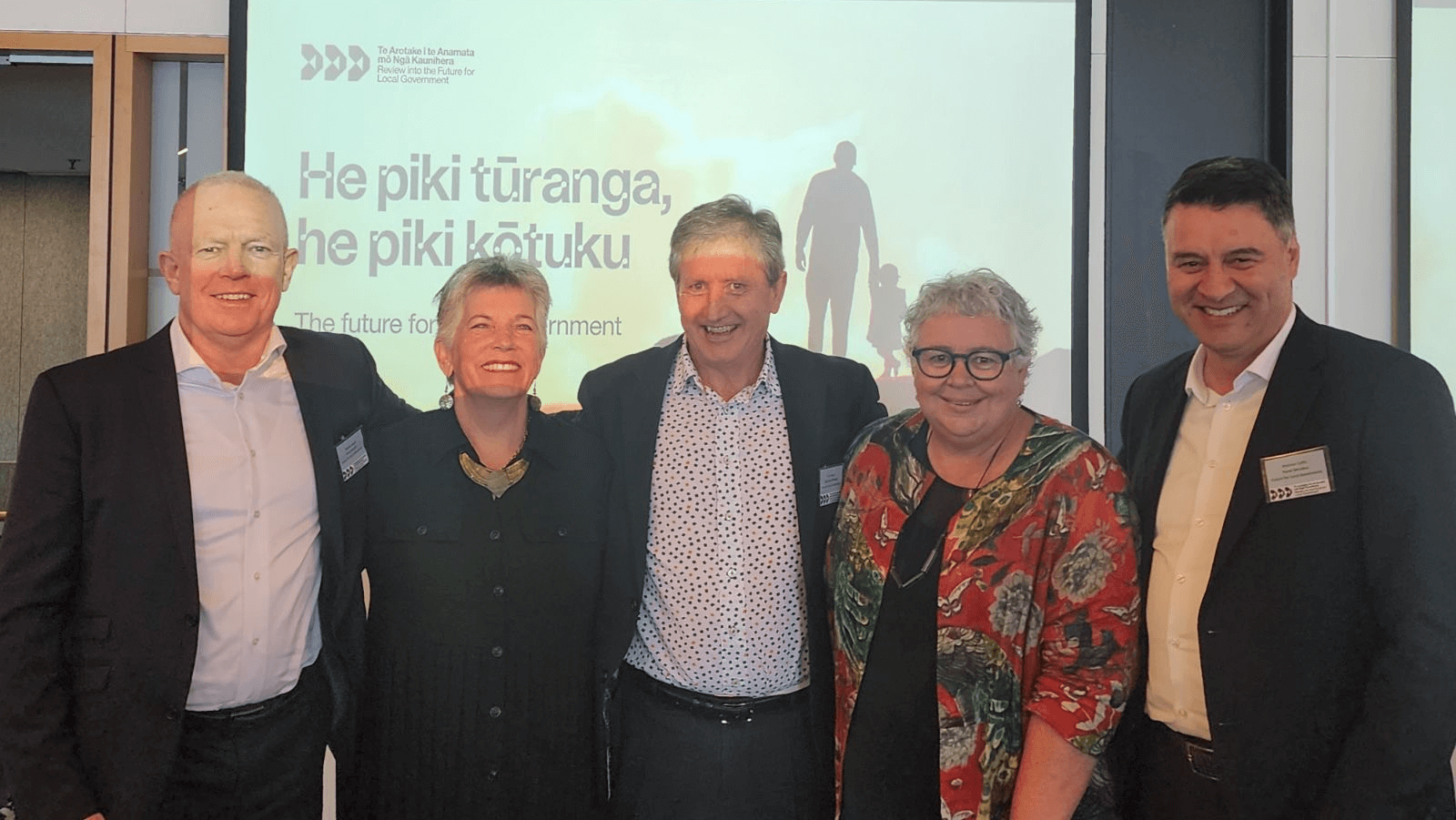
The independent panel appointed to carry out a review into local government reform has released its recommendations.
I agree with the panel’s summary of the challenges facing the sector including significant funding issues. These pressures are exacerbated by unfunded mandates from central government to perform more roles without additional funding. The local–central government relationship is strained and competitive, in part due to misalignment of operating environments and decision making processes.
Citizen participation in local democracy is declining, and people have lost confidence and trust in the current democratic process and institutions. Engagement between councils and communities is often transactional rather than relational. Council systems are under pressure due to constrained resources and challenging political and regulatory environments which makes change difficult and slow.
Local government in New Zealand gets approximately 10 per cent of the national tax take. This is low by international standards and is no longer viable. A rates based approach to funding the investment required into our infrastructure assets and local communities is not enough, hence the need for three waters reform (among others). However these reforms further erode confidence in local government. As the panel states: “The lack of certainty around local government’s permanent place in our democracy is concerning. The current legislative framework for local government is highly prescriptive, reflecting low central government trust in the sector”.
So, I agree with the panel about the need for change. I agree that local government’s core purpose should be enabling local democracy and promoting intergenerational wellbeing. This aligns with the legislative purpose laid out in Section 10 of the LGA:
a. to enable democratic local decision-making and action by, and on behalf of, communities, and
b. to promote the social, economic, environmental, and cultural well-being of communities in the present and for the future.
These are noble aims and I support them. Now we come to the panel’s recommendations and roadmap for how to achieve this.
There are aspects of the report that are ideologically driven that will polarise, divide and potentially further reduce confidence and engagement in local government. For example, the panel takes the position that the democratic idea of one person, one vote is not suitable for New Zealand and we need a different form of democracy.
Civics education, which I believe is key to getting people to understand, support and entrench these changes, is not mentioned in the Panel’s 17 recommendations. The funding aspects are good but don’t go far enough, and will only have value if supported by central government. This is unlikely unless they become an election issue.
My view is that without major change in the way local government is funded the whole report is compromised. I would advocate that interested citizens raise the funding discrepancy with their local politicians and make it an election issue.











